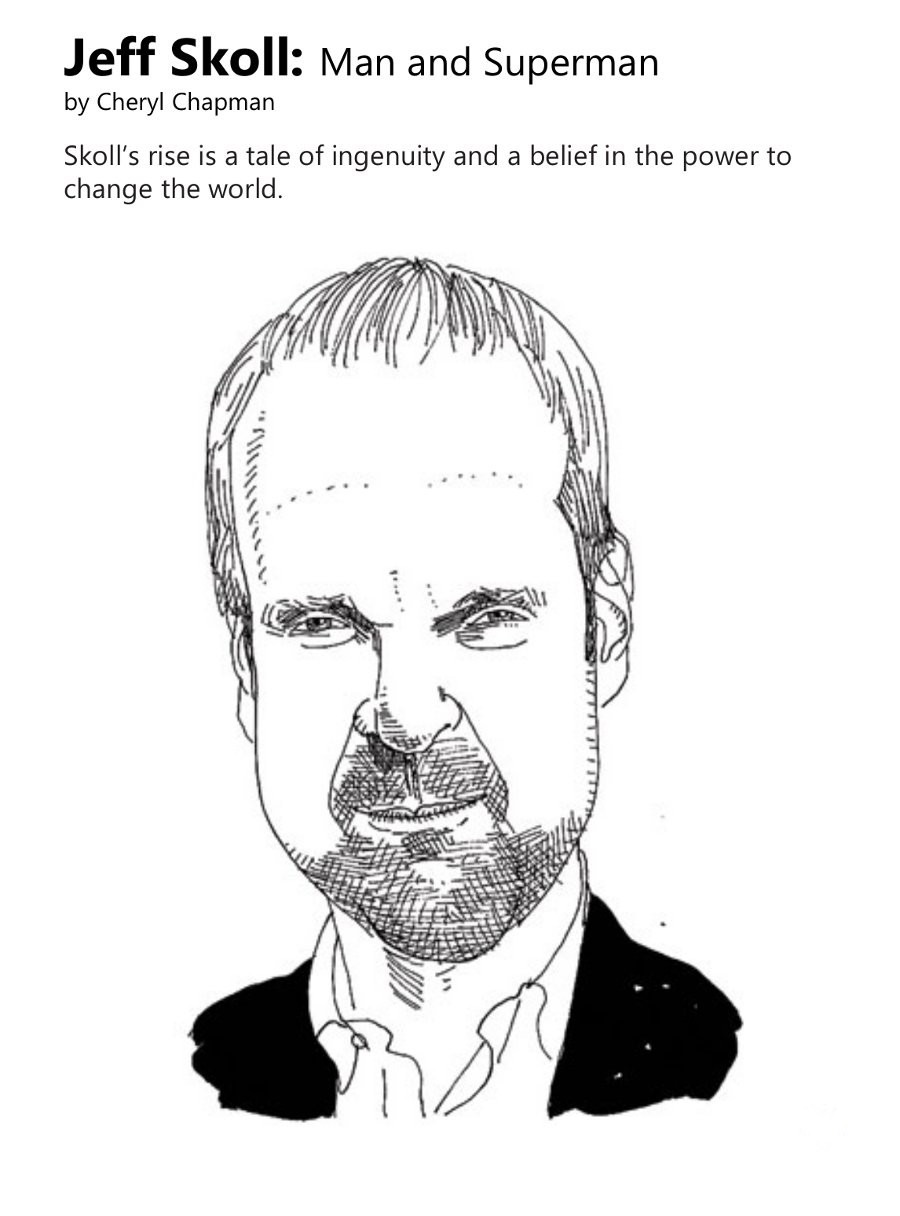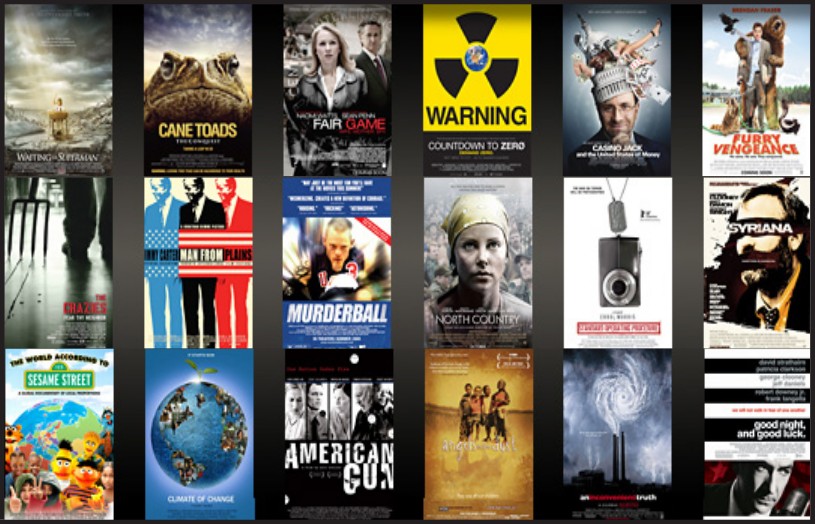



As a weedy teenager growing up in Montreal, Jeff Skoll harbored an ambition to be a writer in the vein of dystopian novelists Aldous Huxley and George Orwell “and get people interested in big issues—and try to make a difference.”
Today, Skoll, 50, who made his fortune by the age of 34 as the first full-time employee and first president of the online auction site that became eBay, is trying to build a more Utopian world in which “self-enlightened empowerment” reigns supreme and connected individuals bring about world change. Quoting one of his heroes, the late John Gardner (founder of Common Cause and Independent Sector), Skoll says that he is interested in building “a sustainable world of peace and prosperity” with a simple approach—“betting on good people doing good things.” He has already parted with half of his net worth, an estimated $3.75 billion,
Skoll focuses much of his considerable personal wealth and business acumen on social enterprises, working through a number of organizations, some of which bear his name: the Skoll Foundation, Oxford University’s Skoll Centre for Social Entrepreneurship and its annual World Skoll Forum; his Capricorn Investment Group that supports such ventures as electric cars, solar panels, and rice plantations in Tanzania;  The Skoll Global Threats Fund, which confronts the greatest dangers our world faces today; and Participant Media, which has produced more than 30 socially motivated movies and in August of 2013 launched TV network Pivot to 40 million homes. Most recently, in November, Skoll announced a $10 million endowment to help launch a new Center For Social Impact Entertainment at the UCLA School of Theater, Film, and Television
The Skoll Global Threats Fund, which confronts the greatest dangers our world faces today; and Participant Media, which has produced more than 30 socially motivated movies and in August of 2013 launched TV network Pivot to 40 million homes. Most recently, in November, Skoll announced a $10 million endowment to help launch a new Center For Social Impact Entertainment at the UCLA School of Theater, Film, and Television
The Skoll Global Threats Fund targets issues such as climate change, water scarcity, pandemics, nuclear proliferation and, what he considers the most worrying threat, the lingering conflict in the Middle East, “the hardest thing I’ve bitten off,” he says. “When anyone tells me I can’t do something, I stop listening.”
In a recent Huffington Post interview he spoke about the skepticism he faced in Hollywood when he launched Participant. “I just wanted to make good quality films that were about something and not worry so much about whether they were successful commercially or not,” he recalled. “And they’ve done just fine commercially—clearly there is an audience for this kind of thing.” That’s a characteristically modest statement for films that have harvested four Academy Awards, out of 18 nominations, and are now referenced worldwide. His film North Country is credited with influencing the signing of the 2005 Violence Against Women Act. Participant’s blockbuster documentary, An Inconvenient Truth, is common viewing in classrooms around the world, and has unquestionably influenced the debate around climate change.

The Skoll Foundation, founded in 1999, offers grants to budding businesses, schools, and services for communities in need. Its approach is highly engineered with a focus on so-called inflection points—opportunities for outsized results. It currently supports 74 entrepreneurial organizations, or what it dubs internally “Uncommon Heroes,” in about 100 countries, granting around $23 million in 2011. Beneficiaries include Gaia Amazonas, a nonprofit that is attempting to pull endangered land in the Amazon back from the brink and has helped protect Colombia’s forests encompassing one-fifth of the entire nation. It is funding “weather-makers” like Sakena Yacoobi, founder of the Afghan Institute of Learning, which since 1995 has sustained education and health programs despite the Taliban’s opposition, and William Foote, an investment banker who has developed a leading model to help Latin American farmers adopt accessible and sustainable practices.
So, how is Skoll doing? He admits that the jury is still out. “For all the things we’re doing,” he said, “I don’t know that it’s enough. The social entrepreneurs are great and making a difference in the world. The movies are doing well and having an impact. But there are still major problems in the world. I don’t know what’s next.” He’s mulled over the idea of entering politics. “Maybe that’s the next frontier—to really engage politically—because that ultimately is where the power is held.”
Still, in a relatively short time, Skoll has become a prominent voice in philanthropic circles. In 2013 he appeared alongside Muhammad Yunas at the Forbes philanthropy conference at the United Nations on market- based solutions to global poverty, and on a separate occasion he dined with Michael Milken, Bill Gates, and Rwanda president Paul Kagame. In 2012, Canada awarded Skoll its highest civilian honor, the Order of Canada, for his wide-ranging philanthropic work. The Order carries the motto Desiderantes Meliorem Patriam—”They desire a better country.”
That’s certainly a fitting way to characterize Skoll. Another might come from one of the films funded by Participant Media—Waiting for Superman, an analysis of the US education system. It could be argued that Skoll has earned the right to Superman’s cape—though modesty would no doubt prevent his putting it on.